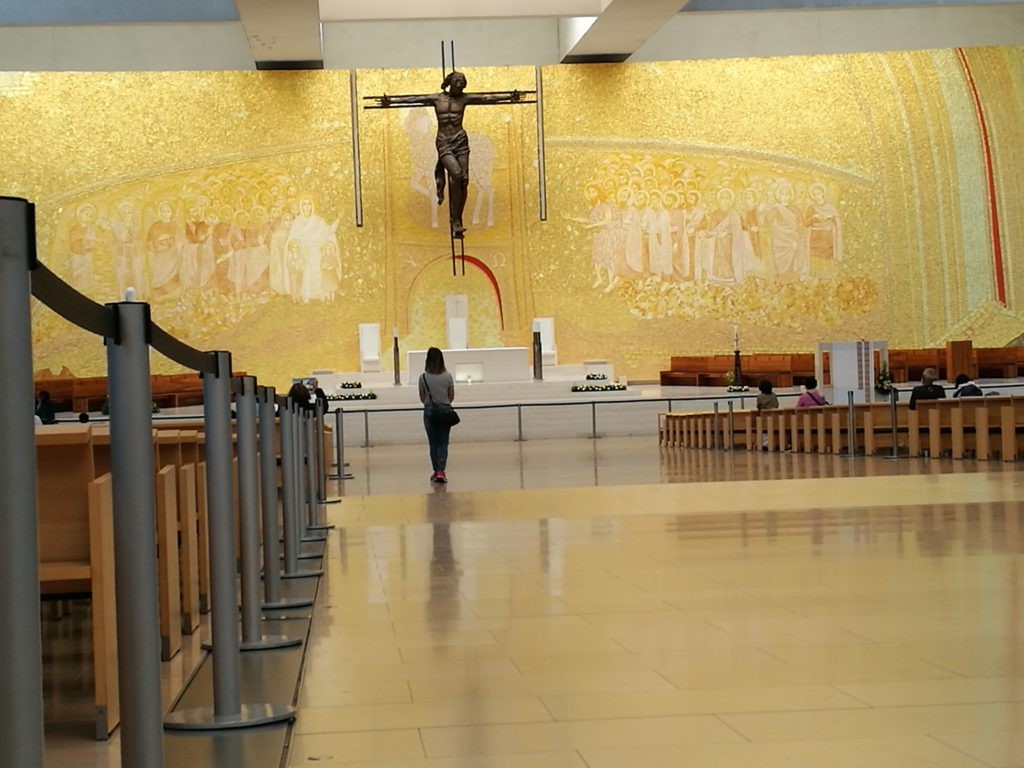-
Rev José Mario O Mandía
We have seen that God is eternal because he does not change, and hence, is not subject to time. But a new question arises. If his being does not change, neither will his thoughts change. If that is the case, what is the use of praying?
Saint Thomas Aquinas addresses this question in the Summa Theologiae (II-IIae, q83, a2) where he asks whether it is becoming for us to pray. He presents three objections.
1. Prayer seems necessary only to “make our needs known to the person to whom we pray. But according to Matthew 6:32, ‘Your Father knoweth that you have need of all these things.’ Therefore it is not becoming to pray to God,” he concludes.
2. When we pray, “we bend the mind of the person to whom we pray, so that he may do what is asked of him. But God’s mind is unchangeable and inflexible” as we have seen. “Therefore,” Aquinas says, “it is not fitting that we should pray to God.”
3. “Further, it is more liberal to give to one who does not ask, than to one who asks…. But God is supremely liberal.” If we ask Him, we don’t allow Him to be more liberal – we seem to be preventing Him from showing forth his generosity. It would thus seem better not to ask or pray.
But St Thomas argues that the Scripture says, “We ought always to pray, and not to faint” (Luke 18:1).
He then points out three different errors concerning prayer:
1. “that human affairs are not ruled by Divine Providence. Hence, it is useless to pray and to worship God at all” because God cannot change anything;
2. “that all things, even in human affairs, happen necessarily,” and thus prayer is useless as well because no one can change them;
3. “that human affairs are indeed ruled by Divine providence, and that they do not happen of necessity.” However, this error believed that Divine Providence can be changed by prayers and worship. Hence, one should pray to make God change his mind.
Saint Thomas replies to the three objections as follows:
1. “We need to pray to God, not in order to make known to Him our needs or desires but to remind ourselves that we need to have recourse to God’s help in these matters.” Prayer reminds us of our needfulness and of our dependence on God. Prayer makes us humble.
2. The purpose of prayer is not to change God’s mind. But in His plans, God has decided that he will make certain things happen if we pray for them. He is just waiting for us to ask.
3. Many times, God gives us many things God “out of His liberality, even without our asking for them.” At other times, he wants us to ask so “that we may acquire confidence in having recourse to God, and that we may recognize in Him the Author of our goods.”
Something more must be said, however. Prayer certainly helps us to obtain the things that we need from God, but it is not the only reason for praying.
We are creatures: we need to acknowledge the gifts (both known and unknown to us) we have received and thank God for them.
We are sinners: we need to ask for pardon for our offenses.
We are children of God: what child does not converse with his father?
We are friends of God: conversation is essential to friendship. Friendships shape us and bring change. Our prayer may not change God; it may not change other people; but it will surely change us.


 Follow
Follow


